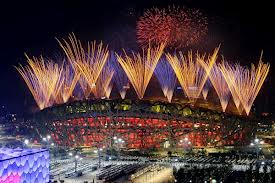By Mark Ledsom
November 20 – China has held on to top spot in an international ranking of major sporting event hosts published by the sports data research company Sportcal.
Releasing their Global Sports Nations Index at the United City sports industry event in Manchester on Tuesday, Sportcal executives said the list was based on a weighted evaluation of all world championships and major multi-sport competitions which countries have either staged in the past six years or are due to stage in the coming six years.
China, which hosted the 2008 Summer Olympics, is also due to stage next year´s Youth Olympic Games in Nanjing as well as the IAAF World Athletics Championships in 2015.
The global importance of football´s World Cup is also reflected in the list, with 2014 Winter Olympic and 2018 FIFA World Cup hosts Russia climbing one place in the standings to second, ahead of the UK, which also climbed one spot. While Qatar´s hosting of the 2022 FIFA World Cup is too far off to be included in the ranking, the tiny West Asian nation has climbed to 28th in the ranking as a result of five major tournaments being staged within the list´s 12-year timespan.
“We include criteria such as the economic, social and media impact of the various tournaments based on the figures available for past tournaments, and using an average from previous tournaments for events that have not yet been staged,” Sportcal CEO Mike Laflin told Insideworldfootball in Manchester. “That puts the World Cup just after the Olympics in terms of index points, followed by a mixed bag of other sporting tournaments.”
While currently just showing which countries are the most active in the staging of major sports events, the ranking has been produced as part of a longer-term project aimed at assessing the wider impact of hosting such tournaments.
“There are a lot of academics who say that impact studies are a complete waste of time because there are too many variables, but when people talk about all the things you can´t measure, they ignore the many aspects that can be measured,” Laflin said.
“It´s clear, for example, that the Beijing Games had a massive media impact for China while London 2012 was also massive but in different ways, for example in the way it boosted public interest in attending sports events – something which is now having a positive knock-on effect for events such as the Commonwealth Games.
“We´re still at the very early stages when it comes to producing a consistent standard of measurements that can be applied across all sports events, but more and more governments are recognising that these events do provide an impact that they´re interested in – whether that be purely in terms of tourism or perhaps the social community aspect of staging a major tournament.
“The ranking we´ve presented today may only show the number and scale of events being staged by each country, but that is still of great interest to governments who want to know how they are doing in comparison to other countries, particularly as many countries now include the hosting of major events among their key performance indicators.”
Global Sports Nation Index 2013 (top ten)
Position +/- Nation
1 – China
2 +1 Russia
3 +1 UK
4 -2 Canada
5 – Italy
6 – Germany
7 – USA
8 +2 France
9 -1 Brazil
10 -1 South Korea
Source: Sportcal
Contact the wroter of this story at moc.l1745177325labto1745177325ofdlr1745177325owedi1745177325sni@m1745177325osdel1745177325.kram1745177325

